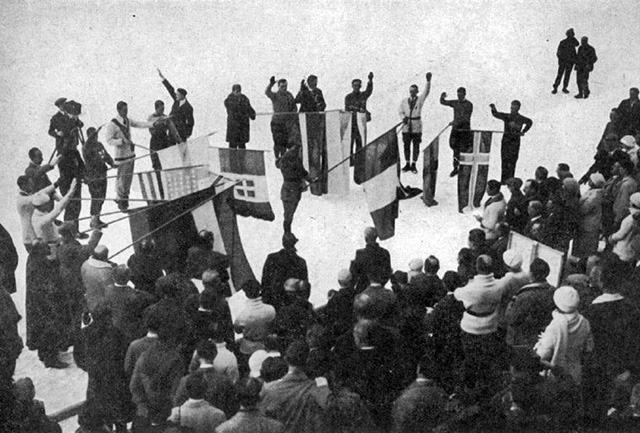The Summer Olympics has been plagued by political boycotts throughout its history, however the Winter Games have been mostly spared of political interference.
The one exception was the 1980 Winter Olympics, when Taiwan refused to participate in the 1980 Lake Placid Games after the International Olympic Committee prohibited it from being called the Republic of China (doing so to placate the People's Republic of China, which was returning to the Olympics for the first time since 1952).
The government of Georgia called for a boycott of the 2014 Winter Olympics, set to be held in Sochi, in response to Russia's participation in the 2008 South Ossetia war. There was also a number of organizations which called for a boycott of the 2014 Winter Olympics due to Russia's oppressive and homophobic legislation.
 Athlete oath at the 1924 Winter Olympics
Athlete oath at the 1924 Winter OlympicsThe Russia team was banned from competing at the 2018 Winter Olympics in PyeongChang, though some individual athletes were able to compete under the Olympic banner. In response, Russia's president Vladimir Putin had threatened to tell its athletes to boycott the 2018 Winter Olympics, but this did not eventuate.
A diplomatic boycott has been announced for the Beijing Winter Olympics in 2022. The US, UK, Australia and Canada will not send government representatives to the Games because of concerns over China's human rights record. India also joined the boycott in response to the Olympic Torch Relay including a soldier involved in a border skirmish with the Indian Army June 2020.


 Current Events
Current Events